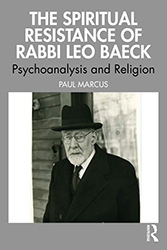By
– August 24, 2011
Levi ben Gershon was one of the most creative thinkers in Jewish history. Also known as Gersonides, he was an innovative scientist, a highly independent biblical exegete, and an original and courageous philosopher. In 1999, Seymour Feldman completed his translation of Gersonides’s philosophical magnum opus, The Wars of the Lord. Now Feldman has written a book that lays out the main areas of thought that Gersonides grappled with in his Wars.
The book is not a general introduction to the personality of Gersonides, and is best understood as a companion volume to the translation of Wars of the Lord. It does not deal with his science or astronomy, and his commentary on the Bible is treated only as a backdrop to discussions in Wars. But for what it does, it is very good. Feldman presents the very dense philosophical questions in the context of earlier thinkers, and then explains the steps by which Gersonides arrived at his own novel positions. These explanations are presented in accessible language, so that even someone unversed in Aristotelian terminology can understand the concepts and follow the arguments. References are also provided to discussions of the issues in modern scholarship.
This is an impressive achievement, and makes this a useful book for anyone interested in medieval Jewish philosophy, either specialist or novice.
The book is not a general introduction to the personality of Gersonides, and is best understood as a companion volume to the translation of Wars of the Lord. It does not deal with his science or astronomy, and his commentary on the Bible is treated only as a backdrop to discussions in Wars. But for what it does, it is very good. Feldman presents the very dense philosophical questions in the context of earlier thinkers, and then explains the steps by which Gersonides arrived at his own novel positions. These explanations are presented in accessible language, so that even someone unversed in Aristotelian terminology can understand the concepts and follow the arguments. References are also provided to discussions of the issues in modern scholarship.
This is an impressive achievement, and makes this a useful book for anyone interested in medieval Jewish philosophy, either specialist or novice.
Pinchas Roth (PR) is a post-doctoral fellow at Ben Gurion University of the Negev.





